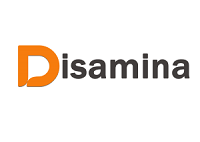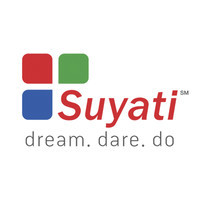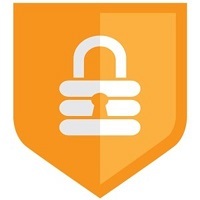What Is Online Proctoring Software?
Online proctoring software is a digital tool that allows you to supervise and record online tests or assessments remotely. It offers a secure and convenient method for educational institutions, certification programs, and corporations to conduct exams or tests to a large number of candidates. This program ensures the integrity of online exams by utilizing innovative technologies such as video and audio recording, screen sharing, and AI-powered algorithms.
This allows proctors to monitor and detect any potential misconduct or cheating efforts by test takers. Online proctoring software includes real-time monitoring, identity verification, live proctoring, AI-based behavior analysis, and customizable settings to match the demands of diverse organizations and exam formats. It also offers exam scheduling flexibility and allows test takers to finish the examination from any location and at any time. Furthermore, internet proctoring software eliminates the need for actual exam centers and manual proctoring, making it more convenient and cost effective.
It also decreases administrative burdens for schools while ensuring a fair and unbiased review process. When selecting an online proctoring program, you must evaluate compatibility with your existing systems, security measures, cost, and customer support. ProctorU, Proctorio, and Examity are among of the market's most popular options. With the appropriate online proctoring software, organizations can expedite their exam administration process and provide their applicants with a flawless and safe online testing experience.
What Are The Recent Trends In Online Proctoring Software?
Online proctoring software is continually expanding and adapting to meet the changing needs and demands of the education and evaluation industries. As more tests and assessments are administered remotely, the need for secure and dependable online proctoring solutions has grown substantially. To stay ahead of the competition, online proctoring software companies have been implementing new and advanced features that provide a better user experience and more security.
Buyers of online proctoring software should be aware of the following current trends:
1. AI Integration: One of the most significant trends in online proctoring software is the incorporation of AI technology. This enables more rapid and precise identification of cheating actions, such as using prohibited materials or seeking assistance from someone else throughout the exam.
2. Mobile Proctoring: As the use of smartphones and tablets grows, online proctoring software providers have begun to offer mobile proctoring services. This enables students to take tests using their mobile devices while being overseen by AI or live proctors.
3. Live Proctoring: While AI proctoring has benefits, some businesses prefer the conventional technique of live proctoring. In response to increasing demand, many online proctoring software businesses now provide live proctoring services, which involve trained proctors monitoring tests in real time.
4. Advanced Biometric Authentication: To combat identity fraud and secure the validity of online exams, online proctoring software companies have integrated advanced biometric authentication technologies. These may involve facial recognition, speech recognition, and keystroke analysis.
5. Integrations With Learning Management Systems (LMS): To make the exam-taking process more convenient for students, many online proctoring software providers have connected their systems with popular learning management systems. This improves the experience for both students and educators.
6. Analytics And Reporting: With so much data produced during online exams, online proctoring software is increasingly incorporating analytics and reporting functions. This allows educators to gain more precise insights into student behavior during exams and highlight areas for improvement.
7. Multi-Language Support: As online education and assessment become more global, the demand for multi-lingual support in online proctoring software has grown. Many suppliers now offer services in multiple languages, making tests more accessible to non-native speakers.
Benefits Of Using Online Proctoring Software
Online proctoring software is a powerful tool that has transformed how tests and assessments are administered in the modern era. With the growing popularity of remote learning and telecommuting, the need for quick and secure online proctoring solutions has never been greater.
Here are the main advantages of adopting online proctoring software, making it a must-have for any educational institution or organization:
1. Accessibility And Convenience: One of the primary benefits of adopting online proctoring software is its accessibility. Students or test-takers can take examinations and assessments from any location, at any time, utilizing a computer or laptop with an internet connection thanks to remote proctoring. This eliminates the necessity for physical presence, making things easier for both the test taker and the proctor.
2. Cost And Time Savings: Traditional in-person proctoring incurs significant costs for planning and administering examinations or assessments, such as venue rental, transportation, and hiring physical proctors. These fees are eliminated with online proctoring software, saving educational institutions or organizations time and money.
3. Improved Security: Online proctoring software has advanced security features including facial recognition, audio and video recording, and AI-based behavior monitoring to assure exam integrity. This removes the possibility of cheating and guarantees a fair and unbiased assessment of the test-takers' performance.
4. Customizable Features: Most online proctoring software includes customizable features like time limitations, question randomization, and a variety of question forms. This enables test producers to create exams that satisfy their specific objectives while also effectively evaluating test-takers' knowledge.
5. Real-Time Monitoring: Online proctoring software allows proctors to watch several tests in real time, offering quick feedback and support to any test takers who experience technological difficulties. This contributes to a smooth exam-taking experience for all participants.
6. Data And Analytics: Online proctoring software also generates detailed data and analytics reports on test takers' performance, such as scores, time spent on each question, and areas for growth. Educators can utilize this data to determine students' strengths and shortcomings and create tailored teaching or training initiatives.
Important Factors To Consider While Purchasing Online Proctoring Software?
When it comes to online proctoring software, there are various variables to consider before purchasing. As more tests and assessments migrate to online platforms, the requirement for a safe and dependable proctoring solution becomes critical. With so many alternatives available, it might be difficult to find the best one for your individual needs.
To help you make an informed decision, below are the most important elements to consider when selecting online proctoring software.
1. Security Features: One of the most important considerations is the software's security features. It should include several layers of protection to prevent cheating, such as identity verification, biometric authentication, screen recording, and a lockdown browser. Look for software that meets industry security requirements such as ISO 27001, GDPR, and FERPA.
2. Compatibility And Integration: The online proctoring software should work with a variety of learning management systems (LMS) and assessment platforms. This allows for simple integration and smooth usage of the program with your existing systems, reducing the need for additional training or software.
3. User-Friendly Interface: The program should have a simple interface that is easy to use for both the test taker and the proctor. It should also provide clear instructions and recommendations for all stages of the proctoring process to ensure a seamless and efficient experience.
4. Flexibility And Customization: Each school has unique proctoring requirements, and the software should be adaptable enough to meet those needs. Look for software that allows you to customize proctoring settings and features, such as the level of monitoring and time limits for tests.
5. Technical Support: A dependable technical support team is essential when it comes to online proctoring software. Look for a service who provides 24-hour technical help to resolve any issues that may emerge during tests. They should also give frequent upgrades and maintenance to keep the program running smoothly.
6. Cost: Prices for online proctoring software vary according on the capabilities and services provided. Consider your budget and look for software that meets your requirements while being affordable. Also, look for any hidden expenditures, such as fees for additional features or technical assistance.
7. Reputation And Review: Conduct extensive research on the software provider's reputation, including reading evaluations from other institutions or users. Look for feedback about the software's performance, security features, and customer support. This will help you understand the software's effectiveness and reliability.
8. Trial Period: Before making a purchase, request a trial period to evaluate the software's operation and ensure that it suits your needs. This will also allow you to evaluate the technical support and customer service supplied by the organization.
What Are The Key Features To Look For In Online Proctoring Software?
Online proctoring software has become a vital tool for universities and companies who want to administer distant tests or assessments. With the growing need for remote learning and employment, there is a greater need for dependable and effective proctoring solutions. However, with so many options available on the market, selecting the correct online proctoring software can be difficult.
To help you make an informed decision, consider the following major aspects of online proctoring software.
1. Secure And Dependable Proctoring Methods: One of the most important features of online proctoring software is its capacity to assure exam integrity. Look for software that includes a variety of proctoring approaches, such as AI-based video monitoring, screen monitoring, and browser lockdown, to prevent cheating and maintain exam credibility.
2. User-Friendly Interface: The user interface is critical to ensuring a seamless and hassle-free proctoring experience for both the proctor and the examinee. The program should be simple to use, with clear instructions and little technical challenges, resulting in a smooth proctoring procedure.
3. Compatibility With Numerous Devices And Platforms: Online proctoring software should work with a variety of devices and operating systems, including laptops, desktops, and mobile devices. This functionality is extremely important for ensuring examinee accessibility as well as proctor convenience.
4. Flexible Exam Modification Options: Because each school has distinct exam administration needs, the software should allow for customization of exam settings. Look for features like timeframe controls, question randomization, and the opportunity to input multimedia content to build unique tests.
5. Advanced Monitoring And Recording Capabilities: Online proctoring software should allow detailed monitoring and recording of the exam session in order to detect any suspicious activity or breaches. Real-time video and audio monitoring, facial recognition, and keystroke recording can all help to increase security and avoid exam fraud.
6. Smooth Interface With LMS Or Other Platforms: interface with Learning Management Systems (LMS) or other third-party platforms is critical for a positive exam experience. Look for software that interacts neatly with your institution's selected LMS or online test platform to ensure a smooth workflow.
7. 24-Hour Technical Support: Technical issues might occur at any time, causing disruptions during exams. As a result, it is critical to select proctoring software that provides 24-hour technical assistance to ensure that any issues are resolved as soon as possible.
Why Do Businesses Need Online Proctoring Software?
Online proctoring software is an important tool for businesses in today's digital economy. As firms adopt remote work and online learning, the necessity for secure and effective monitoring of distant activity grows. Online proctoring software provides a solution by enabling businesses to monitor and validate the legitimacy of online tests, training sessions, and other remote activities.
One of the primary advantages of online proctoring software is its capacity to ensure the validity of online tests. Businesses can use tools like live invigilation and AI-powered plagiarism detection to ensure that tests are taken in a regulated and secure setting. This not only eliminates cheating, but also ensures that the assessment process remains credible. Another reason why organizations use online proctoring software is for compliance.
Many industries, like finance and healthcare, have stringent requirements that require personnel to receive regular training and certification exams. Businesses can meet these compliance standards by using online proctoring software, which provides a secure platform for remote tests and training. Online proctoring software also provides ease and flexibility to enterprises.
Businesses that can conduct exams and training remotely save time and resources by eliminating the requirement for physical testing centers or training facilities. This is especially useful for businesses with a worldwide workforce or personnel in faraway places. Furthermore, online proctoring software can save businesses money. Businesses that offer tests and training online can save money on travel, venue rentals, and exam paper printing. This makes online proctoring software an affordable option for enterprises of all sizes.
How Much Time Is Required To Implement Online Proctoring Software?
The time required to install online proctoring software varies according to numerous factors, including the type of software, the size of the company, and the extent of customisation necessary. On average, getting the program up and operating can take anything from a few days to a few weeks. The first step in installing online proctoring software is to choose the proper supplier and plan based on your individual requirements.
This procedure may include researching several possibilities, scheduling demos, and comparing features and prices. Once you've chosen your pick, the provider will work with you to set up your account and grant you access to the software. Next, the program must be integrated with your current systems, such as your learning management system or test delivery platform.
This integration entails configuring APIs or plugins to provide a smooth connection between the proctoring software and your other products. Once the integration is complete, the software must be customized to your organization's specific needs. This may entail establishing proctoring rules, creating the user interface, and including any required features or integrations.
After the software has been configured, training will be provided to ensure that you and your staff are comfortable with its features and understand how to utilize it successfully. Depending on the software's complexity and the number of users, this training might take anything from a few days to weeks to complete. Finally, before formally launching the program, a pilot test should be performed to discover any potential concerns and make any necessary changes. This testing phase can last from a few days to a week, depending on the size and scope of the pilot.
What Is The Level Of Customization Available In Online Proctoring Software?
When contemplating purchasing online proctoring software, it is critical to examine the level of customization offered. Customization can significantly improve the user experience and overall efficacy of the product for your individual requirements. Different software may provide varying amounts of flexibility, so carefully consider your alternatives before making a decision.
Some important elements to consider while determining the customisation level are:
1. Proctoring Modes: Online proctoring software frequently provides many proctoring options, including live, automated, and record-and-review. The level of flexibility offered in each mode can have a significant impact on the user experience. For example, in live proctoring, the program should allow users to change proctoring settings like audio and video controls, screen sharing options, and chat features. The program for automated proctoring should allow you to customize the monitoring criteria and parameters.
2. Test Parameters: The flexibility to customize test parameters such as time limitations, question randomization, and cheating penalties can significantly improve the security of online exams. Look for software that allows you to customize test parameters to meet your specific exam needs.
3. Accessibility: Online proctoring software should provide variable accessibility settings to meet the diverse needs of test takers. This covers settings for font size, color contrast, and screen reader compatibility.
4. Branding: Depending on your use case, the proctoring software may need to be consistent with your brand. To provide a consistent experience for test takers, look for software that allows you to customize branding choices such as logos, colors, and text.
5. Reporting: The option to tailor the reporting and analytics of proctored exams can help track and analyze test-taker behavior. To have a thorough insight of exam results, look for software that allows for customisable reports. Overall, the level of customisation in online proctoring software is critical to providing the greatest experience for both test takers and administrators. Consider the parameters listed above and select software that provides the level of customization that best suits your needs and requirements.
Which Industries Can Benefit The Most From Online Proctoring Software?
Online proctoring software is a useful tool in a variety of businesses since it provides a secure and convenient means to oversee online tests, certifications, and assessments. While many companies can benefit from this technology, others may find it especially useful.
The following industries can benefit the most from online proctoring software:
1. Education: With the growth of online learning and education, online proctoring software has become critical to assuring the integrity of online tests and assessments. This enables students to take tests from the comfort of their own homes while retaining the academic rigor and legitimacy of in-person exams.
2. Corporate: Many firms use online examinations and training programs for their personnel, particularly remote workers. Online proctoring software provides a safe way to administer these tests and assures that employees complete them without assistance, ensuring the accuracy and integrity of the results.
3. Government And Regulatory Boards: Individuals are frequently required to take tests in order to become certified or licensed. Online proctoring software provides a secure and convenient means to conduct these exams, even to remote candidates, while maintaining the certification process's integrity.
4. Healthcare: Certifications and assessments are critical in the healthcare business to ensure professional proficiency and qualifications. Online proctoring software maintains the validity of these exams while also allowing healthcare workers to take them at their own pace.
5. Financial Services: The financial services industry deals with sensitive information and must strictly adhere to rules. Online proctoring software provides a secure platform for administering examinations, trainings, and certifications, ensuring that employees are competent and in compliance with laws and regulations.
6. Information Technology: IT certifications and examinations are required for workers in this ever-changing field. Online proctoring software allows IT professionals to take these tests in a secure and convenient manner, while also verifying the accuracy and integrity of the results.
Conclusion
To summarize, investing in the right online proctoring software can dramatically improve remote learning and testing experiences. With the growing demand for online education and certification, institutions and organizations must have a reliable proctoring system in place. After studying numerous options and considering key factors such as cost, features, and security, it is recommended that you choose a reputable and established vendor such as ProctorU, Examity, or Proctorio.
These firms provide a full set of capabilities, such as AI-powered remote proctoring, identity verification, and secure browser lockout, to assure fair and reliable assessments. To ensure the software's easy adoption, all stakeholders, including students, teachers, and IT teams, must be involved in the decision-making process. Users should also receive adequate training and support to provide a seamless experience.
Furthermore, when choosing a proctoring program, consider your institution's or organization's individual needs and requirements. Consider integration with existing systems, scalability, and customization choices. Overall, online proctoring software is a useful tool for ensuring the accuracy and legitimacy of online tests. By selecting the correct solution and deploying it efficiently, you can improve the online learning and testing experience for all parties.






















